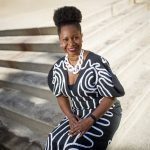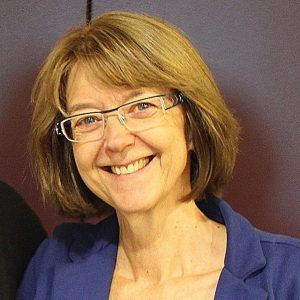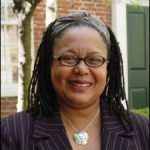About the Visiting Scholars
The Women’s and Gender Studies Visiting Scholar Endowment, founded with Wendy Kolmar’s Presidential Teaching Award and substantially enhanced with a generous gift from Trustee Nancy Schaenen, will bring to campus each year a distinguished scholar in some area of women’s or gender studies scholarship. The scholars will be selected with particular attention to areas not represented on the faculty or in the curriculum.
Campus Visit
Each year, the scholar’s campus visit will include a public lecture, a faculty development workshops, class visits, conversations with students and with faculty recipients of faculty development stipends.
Faculty Development Grant
In conjunction with the scholar’s visit each year, faculty will be offered the opportunity to apply for one of two faculty development stipends of $750. The purpose of these stipends is to encourage faculty to use the opportunity provided by the Scholar’s visit to integrate new perspectives in the curriculum in her/his department or area.
Past Visiting Scholars
Deirdre Cooper Owens (Spring 2021)
 Deirdre Cooper Owens is the Linda and Charles Wilson Professor in the History of Medicine and Director of the Humanities in Medicine program at the University of Nebraska-Lincoln. She is an Organization of American Historians’ (OAH) Distinguished Lecturer, a past American College of Obstetricians and Gynecologists Research Fellow, and has won a number of prestigious honors for her scholarly and advocacy work in reproductive and birthing justice. A popular public speaker, Dr. Cooper Owens has spoken widely across the U.S. and Europe. She has published articles, essays, book chapters, and think pieces on a number of issues that concern African American experiences and reproductive justice. Her first book, Medical Bondage: Race, Gender and the Origins of American Gynecology (Univ. of Georgia Press, 2017) won the 2018 Darlene Clark Hine Book Award from the Organization of American Historians as the best book written in African American women’s and gender history.
Deirdre Cooper Owens is the Linda and Charles Wilson Professor in the History of Medicine and Director of the Humanities in Medicine program at the University of Nebraska-Lincoln. She is an Organization of American Historians’ (OAH) Distinguished Lecturer, a past American College of Obstetricians and Gynecologists Research Fellow, and has won a number of prestigious honors for her scholarly and advocacy work in reproductive and birthing justice. A popular public speaker, Dr. Cooper Owens has spoken widely across the U.S. and Europe. She has published articles, essays, book chapters, and think pieces on a number of issues that concern African American experiences and reproductive justice. Her first book, Medical Bondage: Race, Gender and the Origins of American Gynecology (Univ. of Georgia Press, 2017) won the 2018 Darlene Clark Hine Book Award from the Organization of American Historians as the best book written in African American women’s and gender history.
Molly Ladd-Taylor (Spring 2018)
 Molly Ladd-Taylor is an associate professor of history at York University in Toronto. Her most recent book, Fixing the Poor: Eugenic Sterilization and Child Welfare in the Twentieth Century was published by Johns Hopkins University Pressin 2017. Her other books include: ‘Bad’ Mothers: The Politics of Blame in 20th-Century America Co-edited with Lauri Umansky (New York Univ. Press: 1998); Mother-Work: Women, Child Welfare and the State 1890-1930 (University of Illinois Press: 1994); Raising a Baby the Government Way: Mothers’ Letters to the Children’s Bureau, 1915-1932, edited with introduction (Rutgers University Press: 1986)
Molly Ladd-Taylor is an associate professor of history at York University in Toronto. Her most recent book, Fixing the Poor: Eugenic Sterilization and Child Welfare in the Twentieth Century was published by Johns Hopkins University Pressin 2017. Her other books include: ‘Bad’ Mothers: The Politics of Blame in 20th-Century America Co-edited with Lauri Umansky (New York Univ. Press: 1998); Mother-Work: Women, Child Welfare and the State 1890-1930 (University of Illinois Press: 1994); Raising a Baby the Government Way: Mothers’ Letters to the Children’s Bureau, 1915-1932, edited with introduction (Rutgers University Press: 1986)
Michelle Parkerson (Fall 2017) Lecture Only

Writer, filmmaker, educator and performance artist, Michelle Parkerson is from Washington, DC. Among her award-winning films are Gotta Make This Journey: Sweet Honey in the Rock, A Litany For Survival: The Life and Work of Audre Lorde (co-directed with Ada Gay Griffin) and Storme: The Lady of the Jewel Box. Her documentaries have screened at several prestigious international festivals, including The Sundance Film Festival, The Berlin Film Festival and The American Film Institute. She has received numerous grants, awards and fellowships, including a National Endowment for the Arts Grant, a Rockefeller Foundation Fellowship, a D.C. Mayor’s Art Award. She is the author of “Waiting Rooms” (Common Ground Press), her first book of poetry and short fiction. She has served on the faculties of Northwestern University, Howard University, the University of Delaware and Temple University’s Dept. of Film and Media Arts in Philadelphia, PA. In May 2017, Michelle Parkerson was appointed to the Mayor’s Office of LGBTQ Affairs Advisory Committee.
Heather Love (Spring 2016) Lecture Only
 Heather Love teaches English and Gender Studies at the University of Pennsylvania. She is the author of Feeling Backward: Loss and the Politics of Queer History (Harvard), the editor of a special issue of GLQ on Gayle Rubin (“Rethinking Sex”), and the co-editor of a special issue of Representations (“Description Across Disciplines”). Love has written on topics including comparative social stigma, compulsory happiness, transgender fiction, spinster aesthetics, reading methods in literary studies, and the history of deviance studies. She is currently completing a book on practices of description in the humanities and social sciences.
Heather Love teaches English and Gender Studies at the University of Pennsylvania. She is the author of Feeling Backward: Loss and the Politics of Queer History (Harvard), the editor of a special issue of GLQ on Gayle Rubin (“Rethinking Sex”), and the co-editor of a special issue of Representations (“Description Across Disciplines”). Love has written on topics including comparative social stigma, compulsory happiness, transgender fiction, spinster aesthetics, reading methods in literary studies, and the history of deviance studies. She is currently completing a book on practices of description in the humanities and social sciences.
Anna Badkhen (Spring 2014)
Anna Badkhen writes about people in extremis. Her most recent nonfiction book is The World Is a Carpet (Riverhead, 2013). Badkhen has lived and worked in the developing world for most of her life. Her writing from a dozen war zones on three continents has won numerous awards and has appeared in The New York Times, The New Republic, Foreign Policy, and other publications. Badkhen currently resides in Philadelphia.
Photo Credit: Mari Bastashevski
Uma Chakravarti (Fall 2012)
Uma Chakravarti is a feminist historian, teacher, democratic rights’ activist, and theorist of caste. Now an independent scholar, she taught history at Miranda House, Delhi University for more than 30 years. Prof Chakravarti has published 7 books and more than 50 papers including Gendering Caste: Through a Feminist Lens, (2004) and Rewriting History: The Life and Times of Pandita Ramabai in which she has contextualised gender issues within the larger framework of caste contestations, class formation and legal changes. She has been involved in the women’s movement for more than 40 years; as an activist, Prof. Chakravarti has also been part of collaborative academic and democratic interventions on community strife and the complicity of the state in violence against particular segments of society. She is also a filmmaker; her film, ‘A Quiet Little Entry,’ documents the life of an unknown woman on the fringes of the national movement.
Susan Douglas (Spring 2012) – lecture only
Susan J. Douglas is a prize-winning author, columnist, and cultural critic, and the Catherine Neafie Kellogg Professor of Communication Studies at The University of Michigan. Her book Where the Girls Are was widely praised, and chosen one of the top ten books of 1994 by National Public Radio, Entertainment Weekly and The McLaughlin Group. She is the author of The Rise of Enlightened Sexism (St. Martin’s, 2010), Enlightened Sexism: The Seductive Message That Feminism’s Work Is Done (Henry Holt, 2010), She is also the author of The Mommy Myth: The Idealization of Motherhood and How it Undermines Women (with Meredith Michaels, The Free Press, 2004); She has lectured at colleges and universities around the country, and has appeared on The Today Show, The CBS Early Show, The Oprah Winfrey Show, Working Woman, CNBC’s Equal Time, NPR’s Fresh Air, Weekend Edition, The Diane Rehm Show, Talk of the Nation, and Michael Feldman’s Whad’ya Know.
Bettye Collier-Thomas (Fall 2011)
Dr. Bettye Collier-Thomas is Professor in the Department of History at Temple University. Currently she is a Public Policy Scholar at the Woodrow Wilson Center where she is working on a history of African American women and politics. She is the author of the award-winning Jesus, Jobs, and Justice: African American Women and Religion and the co-editor (with V. P. Franklin) of Sisters in the Struggle: African American Women in the Civil Rights-Black Power Movement. Recognition for her role as a founder of the field of African American women’s history, and excellence as a scholar is extensive, including receipt of a U.S. Department of the Interior Civilian Conservation Service Award; the National Black Women’s Political Caucus’s Shirley Chisholm Award for Excellence; and the Association for the Study of African American Life and History’s Carter Godwin Woodson Distinguished Scholars Medallion in 2001.
Linda Alcoff (Fall 2010)
 Linda Martín Alcoff is Professor of Philosophy at Hunter College/CUNY Graduate Center. She works primarily in continental philosophy, epistemology, feminist theory, Latino philosophy, and philosophy of race. Her books and anthologies include Feminist Epistemologies co-edited with Elizabeth Potter (Routledge, 1993), Thinking From the Underside of History co-edited with Eduardo Mendieta (Rowman & Littlefield, 2000), Epistemology: The Big Questions (Blackwell, 1998), Real Knowing: New Versions of the Coherence Theory of Knowledge (Cornell, 1996), Identities co-edited with Eduardo Mendieta (Blackwell, 2002), Singing in the Fire: Tales of Women in Philosophy (Rowman and Littlefield 2003), Visible Identities: Race, Gender and the Self (Oxford 2006), The Blackwell Guide to Feminist Philosophy co-edited with Eva Feder Kittay (Blackwell 2006), and Identity Politics Reconsidered co-edited with Michael Hames-Garcia, Satya Mohanty and Paula Moya (Palgrave, 2006).
Linda Martín Alcoff is Professor of Philosophy at Hunter College/CUNY Graduate Center. She works primarily in continental philosophy, epistemology, feminist theory, Latino philosophy, and philosophy of race. Her books and anthologies include Feminist Epistemologies co-edited with Elizabeth Potter (Routledge, 1993), Thinking From the Underside of History co-edited with Eduardo Mendieta (Rowman & Littlefield, 2000), Epistemology: The Big Questions (Blackwell, 1998), Real Knowing: New Versions of the Coherence Theory of Knowledge (Cornell, 1996), Identities co-edited with Eduardo Mendieta (Blackwell, 2002), Singing in the Fire: Tales of Women in Philosophy (Rowman and Littlefield 2003), Visible Identities: Race, Gender and the Self (Oxford 2006), The Blackwell Guide to Feminist Philosophy co-edited with Eva Feder Kittay (Blackwell 2006), and Identity Politics Reconsidered co-edited with Michael Hames-Garcia, Satya Mohanty and Paula Moya (Palgrave, 2006).
Judith Halberstam (Fall 2009)
Judith Halberstam is Professor of English and Gender Studies at USC. Halberstam works in the areas of popular, visual and queer culture with an emphasis on subcultures. Halberstam’s first book, Skin Shows: Gothic Horror and the Technology of Monsters (1995), was a study of popular gothic cultures of the 19th and 20th centuries and it stretched from Frankenstein to contemporary horror film. Her 1998 book, Female Masculinity (1998), made a ground breaking argument about non-male masculinity and tracked the impact of female masculinity upon hegemonic genders. Halberstam’s last book, In a Queer Time and Place: Transgender Bodies, Subcultural Lives (2005), described and theorized queer reconfigurations of time and space in relation to subcultural scenes and the emergence of transgender visibility. This book devotes several chapters to the topic of visual representation of gender ambiguity. Halberstam was also the co-author with Del LaGrace Volcano of a photo/essay book, The Drag King Book (1999), and with Ira Livingston of an anthology, Posthuman Bodies (1995). Halberstam regularly speaks on visual culture and publishes journalism in venues like BITCH Magazine and The Nation; she is currently finishing one book on “The Politics of Knowledge” and beginning another on “Bats.”
Nancy Folbre (Spring 2008) – lecture only
Nancy Folbre is the author of many books including The Invisible Heart: Economics and Family Values (2001) and most recently, Valuing Children (Harvard University Press, 2007). She is a Professor of Economics at the University of Massachusetts at Amherst. Her work has been instrumental in bringing feminist insights to bear on economics and in linking economics to feminist theory. Her scholarship examines the real world implications of our collective undervaluing of the work of caring for others. She argues that mainstream economists do not pay enough attention to the economics of care because caring for others has been feminized. Furthermore, she points out that these conceptual and empirical lacunae lead to the marginalization of women, children, the poor and the elderly.
Mervat Hatem (Fall 2005)
 Mervat Hatem is a professor of political science interested in the study of gender and politics in the Middle East and the Arab World. After the Second Gulf War (1990-1991), she added to her interests the study of gender and Arab American politics. In response to 9/11, I have added to my interest in Arab Americans the study of American Muslim, a group very much misunderstood and presently the target of the War on Terrorism. Among her recent articles are: “Gender and Islamism in the 1990s” in Middle East Reports (Spring 2002); “Egyptian Discourses on Gender and Political Liberalization: Do the Secularist and Islamist Views Really Differ?” in Islam: Critical Concepts of Sociology.
Mervat Hatem is a professor of political science interested in the study of gender and politics in the Middle East and the Arab World. After the Second Gulf War (1990-1991), she added to her interests the study of gender and Arab American politics. In response to 9/11, I have added to my interest in Arab Americans the study of American Muslim, a group very much misunderstood and presently the target of the War on Terrorism. Among her recent articles are: “Gender and Islamism in the 1990s” in Middle East Reports (Spring 2002); “Egyptian Discourses on Gender and Political Liberalization: Do the Secularist and Islamist Views Really Differ?” in Islam: Critical Concepts of Sociology.
Rosemarie Garland-Thomson (Spring 2005)
Rosemarie Garland-Thomson is Associate Professor of Women’s Studies at Emory University in Atlanta, Georgia. Her fields of study are feminist theory, American literature, and disability studies. Her scholarly and professional activities are devoted to developing the field of disability studies in the humanities and in women’s studies. She is the author of Extraordinary Bodies: Figuring Physical Disability in American Literature and Culture (Columbia UP, 1997), editor of Freakery: Cultural Spectacles of the Extraordinary Body (NYU Press, 1996), and co-editor of Disability Studies: Enabling the Humanities (MLA Press, 2002). She is currently writing a book on the dynamics of staring and one on the cultural logic of euthanasia. A complete list of her publications can be found on the back of this sheet.
Evelyn Hammonds (Spring 2002)
 Professor Hammonds received a Bachelor of Science in Physics (Spelman College, 1976), a Bachelor of Electrical Engineering (Georgia Institute of Technology, 1976) and a Ph.D. in the History of Science (Harvard University, 1993). She was Five College Minority Fellow (1989‑1990) and also a Visiting Assistant Professor of the History of Science at Hampshire College(1990‑91). During the academic year 1994‑1995 she was a National Endowment for the Humanities Fellow and member of the School of Social Science at the Institute for Advanced Studies at Princeton. Her research is in the history of medicine and public health in the United States, with a special focus on the study of race and gender in science and medicine. She is the author of The Search for Perfect Control: A Social History of Diphtheria in New York City, 1880‑1930.
Professor Hammonds received a Bachelor of Science in Physics (Spelman College, 1976), a Bachelor of Electrical Engineering (Georgia Institute of Technology, 1976) and a Ph.D. in the History of Science (Harvard University, 1993). She was Five College Minority Fellow (1989‑1990) and also a Visiting Assistant Professor of the History of Science at Hampshire College(1990‑91). During the academic year 1994‑1995 she was a National Endowment for the Humanities Fellow and member of the School of Social Science at the Institute for Advanced Studies at Princeton. Her research is in the history of medicine and public health in the United States, with a special focus on the study of race and gender in science and medicine. She is the author of The Search for Perfect Control: A Social History of Diphtheria in New York City, 1880‑1930.